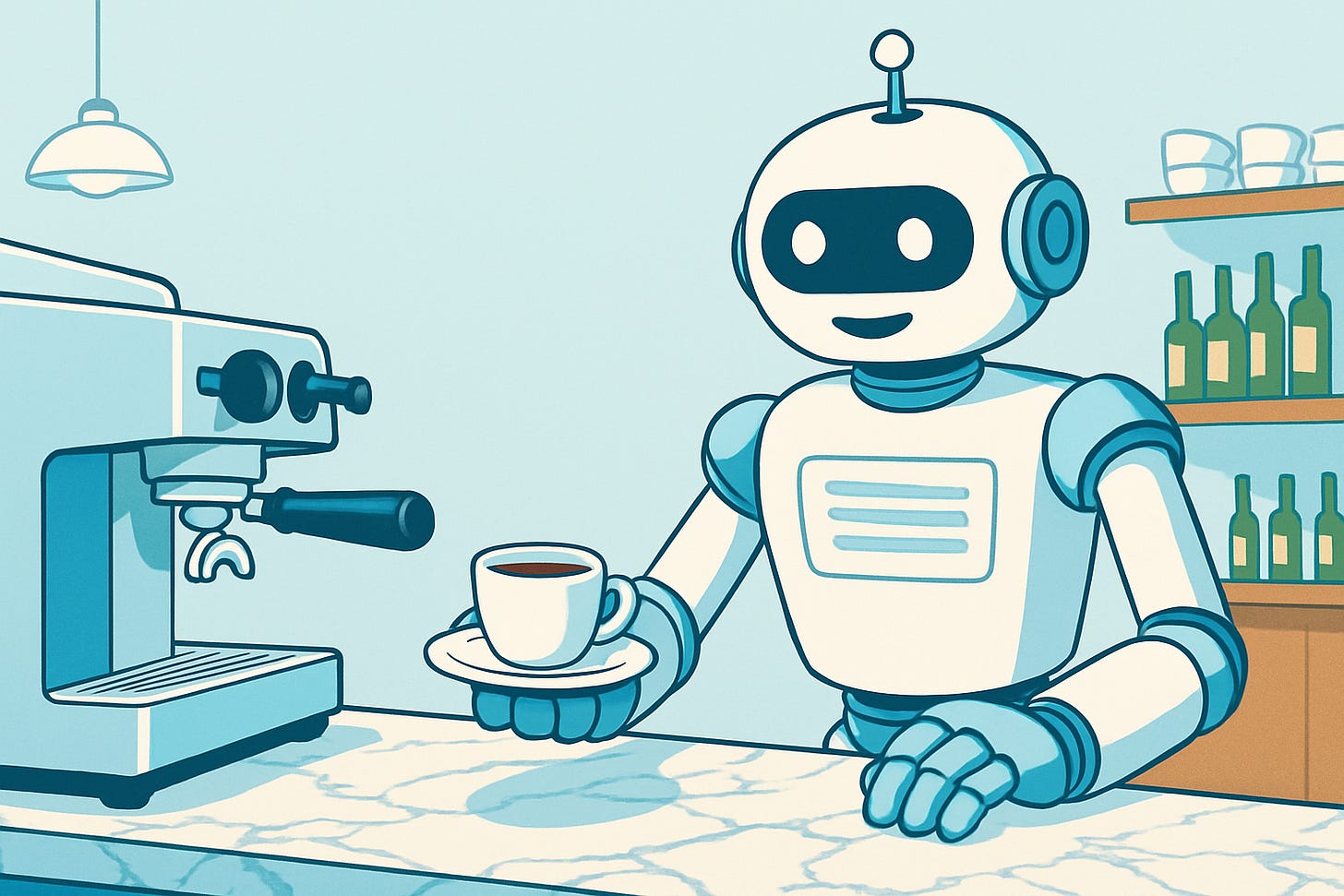In her latest piece, titled Hospitality Without Humans, UC Irvine professor
reflects on the impact of automation in hospitality after staying at a fully automated hotel in Berlin.A future hospitality industry without a human touch—in hotels, restaurants, stores, taxis—will only deepen a culture of disconnection. AI can learn your preferences, but it can’t offer empathy. We will likely quickly normalize fully automated experiences, and it will feel as ordinary as self-check-in kiosks do today. Yes, it will be more efficient, and yes, it will reduce costs. But something intangible will be lost: a piece of our shared humanity.
Gloria’s concern is legitimate, but I, for one, am not worried.
When I studied in the engineering department at Università di Ferrara, many of us required astounding quantities of caffeine. We had two options for our coffee: the vending machine or the café next door.
The vending machine coffee was as bad as you can imagine, but it was cheap, fast, and carried enough caffeine to get you over the last period of differential equations.
The café next door offered as high-end an experience as young students could expect. Friendly baristas manned espresso machines behind a shiny marble benchtop where we’d sip scalding hot espressos—rigorously without sugar—while chatting with friends about course load, assignments, and weekend adventures.
The automated coffee machine did not put the café out of business. Nor did the café steal customers from the machine. The two coexisted in harmony, each serving a different kind of customer.
My guess for the future of hospitality is that the advancement of automation won’t displace humanity. If anything, it will make people appreciate the value of connection even more. Automation, by making hospitality cheaper and more efficient, might give more people the opportunity to travel. In the meantime, human-run hospitality providers will stand out by offering a genuine experience—one automation cannot replicate. Like cafés and vending machines, fully automated hotels and restaurants can coexist with traditional ones by catering to different kinds of customers.
The broader point I’d like to make is that more automation isn’t necessarily subtractive when we look at its impact with a wider lens. Automation may remove the human touch in one area, but it can free up resources—and attention—to foster connection elsewhere. In the end, it’s up to us to shape the future and to make the most of what progress unlocks.
Gloria concludes by writing: “As we automate more of our everyday experiences, let’s be careful not to automate away the very things that make us feel seen, valued, and human.” Here’s my counter: As we automate more of our everyday experiences, let’s use the time and space we gain to create new, deeper ways to feel seen, valued, and human.




